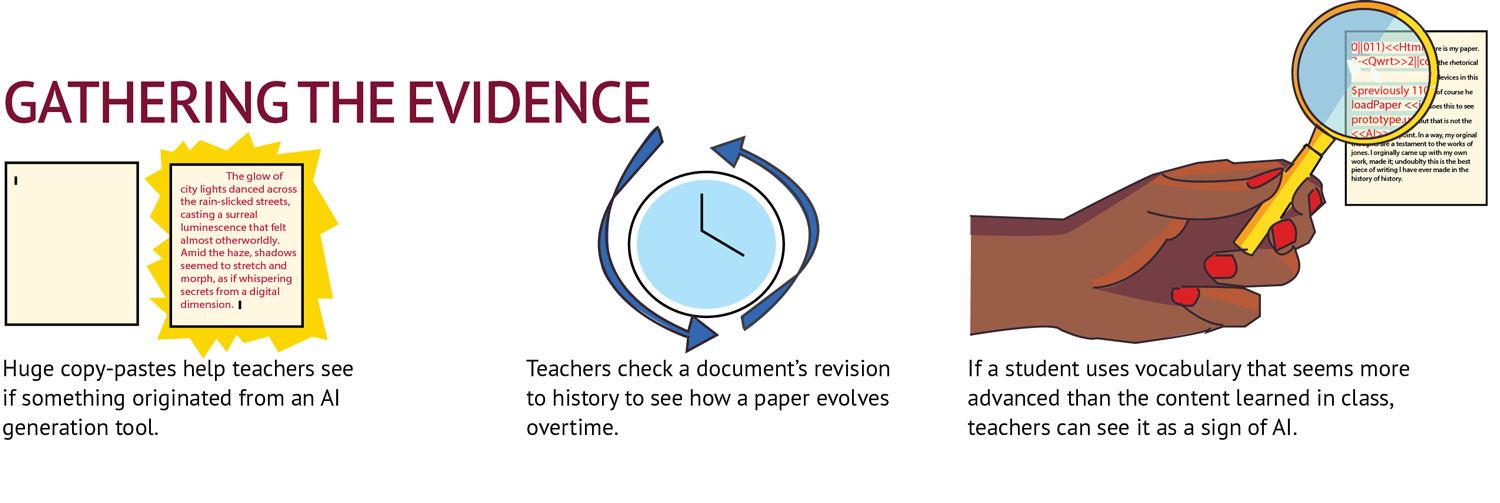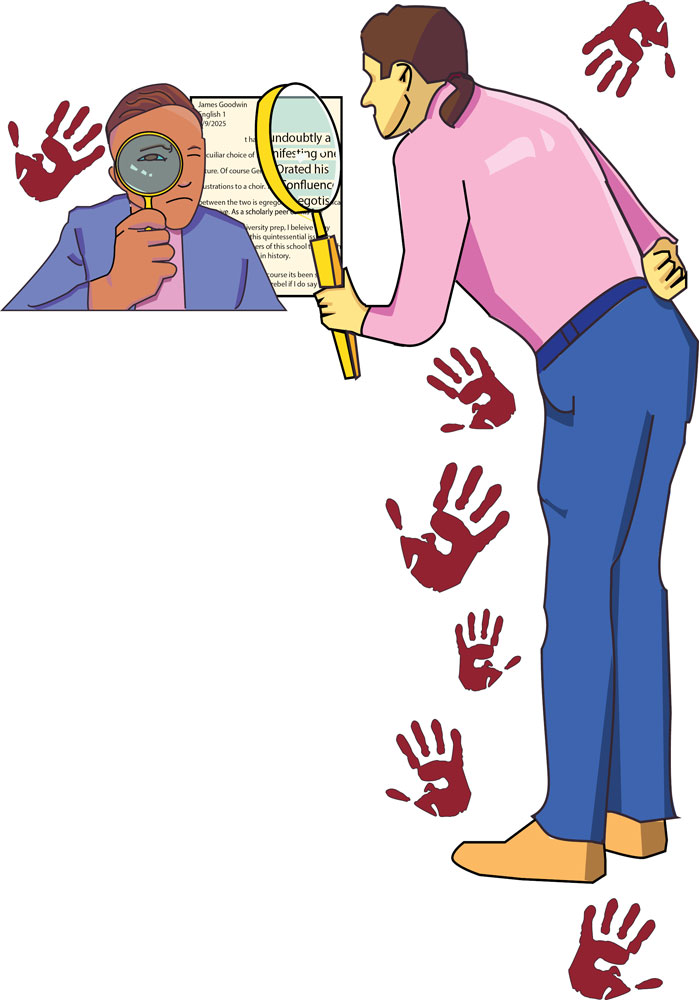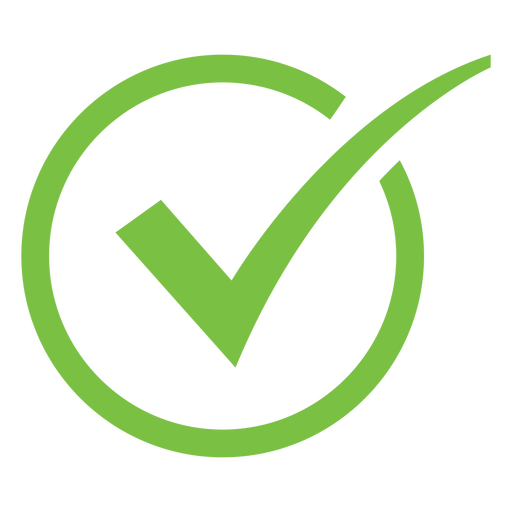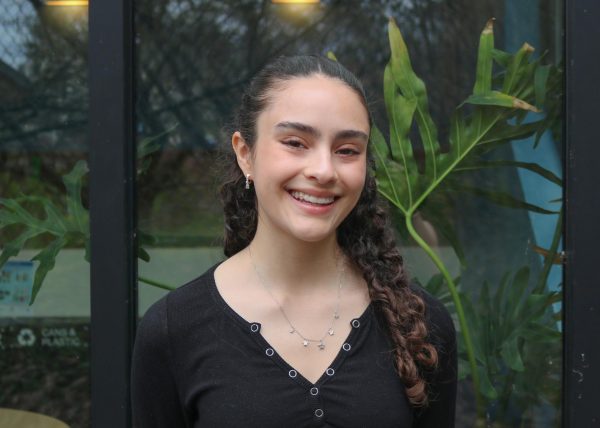Five minutes until the deadline: that’s how long one student waited to write an entire English essay before it was due. Each second that passed was a warning to make a decision quickly. The senior, who wishes to remain anonymous to protect his privacy, selected his fate: create a full draft written by ChatGPT.
“I didn’t really have a choice not to submit it,” he said. “It was better to just turn it in with most of it being cheated, rather than just turning it in incomplete.”
That swift decision did not go unnoticed, as the student’s unoriginal work was uncovered by his teacher, making him repeat the assignment.
Since the introduction of ChatGPT in 2018, the algorithm has advanced significantly, increasing its factual accuracy, introducing internet connectivity and providing more coherent responses. The introduction of artificial intelligence to the world further complicated a challenge in the realm of teaching: cheating.
Teachers like English teacher Alana Kaholokula now have to think of creative ways to detect AI. One way that Kaholokula distinguishes student work from ChatGPT is through a process grade. Revision histories, copy-and-pastes and the progression of a paper are just some of the things that help Kaholokula determine the truth.
Checking for AI was not what Kaholokula signed up for when she got into teaching. The English teacher spends hours of her grading process following up on AI or other academic integrity questions.
“I’m always here to make sure that students are understanding what’s expected, learning the skills, making progress forward,” Kaholokula said. “But I don’t want to be like a plagiarism catcher. That’s not my job.”
In an anonymous poll of 44 UPrep students across all four grades, 18.2% said that they cheated with artificial intelligence. A junior who wishes to remain anonymous to ensure his privacy, never thought that he would be caught using AI until it was too late.
“I’ve heard so many of my friends using AI, and I thought that it wasn’t really a big deal until I did it,” the junior said. “I was just in disbelief that I was in trouble for it.”
After his English teacher confronted him, the junior needed to meet with the Assistant Director of Upper School Meg Anderson-Johnston. Part of Anderson-Johnston’s job entails managing and responding to any cases of academic dishonesty— this, of course, includes artificial intelligence.
While students may use AI to be efficient, Anderson-Johnston finds that the opposite tends to happen.
“Not only does it create extra work for the teacher, but it creates a lot of extra work for that student if they get caught,” Anderson-Johnston said. “They are typically starting from scratch on an entirely new assignment, if they get the opportunity to redo it, and that’s an immense amount of work.”
English is not the only subject that has faced challenges with ChatGPT. Departments like the language departments navigated AI long before the existence of the chatbot. With Google Translate being introduced in 2006, French teacher Amy Pasterczyk is all too familiar with the challenges of AI in the classroom.
“I think with languages, we are kind of unique because AI kind of showed up for us much earlier on,” Pasterczyk said. “AI has gotten a lot smarter, but that doesn’t mean that it’s not still really clear when someone is using it.”
Pasterczyk can usually detect AI in her students’ work when a verb tense or vocabulary word is significantly advanced compared to the content she covers in class. Pasterczyk urges her students to see her if they want to further their French skills.

Graphics: Manola Rubiralta
“It’s okay to ask questions. I wish students would come to office hours and show me their writing,” Pasterczyk said. “I don’t want to know what the computer can do. I want to know what you can do.”
Kaholokula encourages her students to think before they submit an assignment created with AI.
“Are you outsourcing your own brain? Are you making yourself redundant? I think those are sort of the questions that I would seek to ask my students,” Kaholokula said. “If we make ourselves redundant, then what role do we have in deciding how we want to shape our own society, and who we want to be going forward?”



